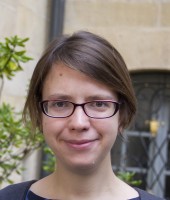Accusation, Censure, Avoidance and Dissimulation : Questions concerning the punishment of notorious priests in penitential literature at the turn of the thirteenth century
Intervention d'Emily Corran, chercheuse-résidente 2022-2023 de l'IEA de Paris, dans le cadre du séminaire "L’intention au Moyen Âge" organisé par l'EPHE-PSL et l'ANR Cisame.
Présentation
This paper interrogates thought about imputability before and after the Fourth Lateran Council (1215). One of the legal innovations in the constitutions of the Fourth Lateran Council was the creation of clear procedures and sanctions to ensure that pastoral care and moral regularity was maintained across Christendom; this included episcopal visitation, the bishop’s duty to correct his chapter, and sanctions for negligent prelates. This paper argues that these new constitutions arrived in the context of considerable anxiety in penitential writings about the degree to which priests and bishops can be blamed for complicity with their colleagues’ sins. Before the council, Peter the Chanter and his student Robert of Courson discussed questions such as the guilt of priests who accept the masses of other priests with concubines, the choice to elect the less capable candidate to a prelacy and fraternal correction. Robert of Courson insisted on a strong moral obligation on members of the clergy to take the initiative to correct immoral practices in the church, and penitential implications for those who failed to do so. By contrast if we look at later penitential books (namely Raymond of Peñafort’s Summa de Poenitentia and William of Rennes’ Apparatus) the subject is treated in a more legalistic way, in which questions and penitential proceedings are secondary to discussion of procedure in this world. As such, I will argue that this topic paints a complex and informative picture about the conceptual distinction between legal and penitential culpability and the separation of theology and law at the turn of the thirteenth century.
Discutant : Francesco Siri (ENC)
Plus d'informations : https://parimed.hypotheses.org/category/colloques-et-journees-detude/fevrier-2023
|
|
|
|
|
|

